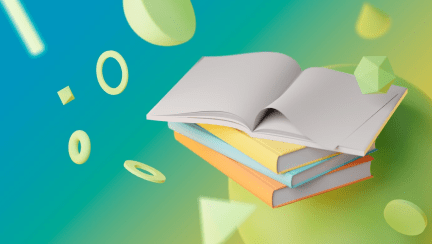AI isn’t a new thing around. It has been invading our everyday life step by step for over two decades now. Search engines that use AI to personalize our search outputs, Siri and Alexa that help us answer basic questions quickly have become a part of our life. And no one would question AI legacy in this regard. Yet, since the introduction of ChatGPT, AI has been questioned too often, especially in education.
Even though AI tools, such as Grammarly and Quillbot, not to mention Microsoft spell check, had been widely used before the dawn of ChatGPT, namely ChatGPT and its rigorous acceptance and use caused the whole debate over AI threat to education. Yet, at the very beginning AI was meant to streamline learning and help students work on their assignments, but at the same time AI was and is still used as a tool to catch cheaters (plagiarism checkers and AI detectors still rely on AI algorithms). But is AI that bad to convince everyone around to stop using it?
No doubt, AI can write essays and do homeworks faster than even the brightest students. It can solve problems faster than teachers can explain them. It can brainstorm ideas and projects faster than most effective and brilliant groups. And it simply does so. But in doing so, AI cracks one of the fundamentals of education. Why do students write essays, solve problems, and do projects for the most part? Right answer is to receive passing grades in the courses and then getting a diploma. Modern education has accepted the idea that grades equal learning and determine the students’ capabilities to apply their knowledge in practice. Teaching and learning have become output and performance oriented. And here, when students use AI to complete their assignments or write essays, it’s not because they are lazy; it’s rather because they’ve learned to “perform” education, and not absorb or live it.
As students become accustomed to instant answers and polished essays in minutes, the struggle of developing own skills of argumentation, writing, and thinking feels unnecessary. Thus, AI’s convenience and efficiency slowly erode the real value of personal efforts. Being a student myself, I can honestly admit resorting to AI for some of my assignment. But one time when we reflected on our submissions in class, I could not articulate my arguments the same way AI did in “my” essay. That day I rather embarrassed since I undermined my previous learning efforts in quite a stupid way – relying on AI. I realized that simple way out of using AI isn’t a promising path to my future. Luckily, that realization helped me get back on track of learning process where I continued to absorb knowledge and let it soak through my mind to make it my knowledge, my expertise, and my experience. Though I don’t reject AI, I don’t allow it to take over me but rather help me be more productive.
AI is not as destructive as it may seem. In reality it can be really helpful for students with disabilities or for those who have language barriers, letting them enage with content equitably. It can provide feedback and suggestions for improvement in writing. And those who learn to use AI responsibly will definitely become more efficient without compromising the process of learning. Those students who value achievement and own success will be able to make AI their assistants. Yet, students who attend classes just for attendance and sumit assignments just for grades to receive their diplomas may be too tempted to shift the responsibility of learning to AI. And while they can get their diplomas, they will fail to receive education, which should stay process rather than output oriented.
In this way, I think AI is not destroying or threatening education as such. It is refining it, especially in terms of the whole purpose of education. It is a trickster that does neither good nor evil to education. The real question here how we use AI to achieve our educational goals – let it do the work for us or use it smartly to make the process of learning more efficient.


Writing Under Pressure: Cognitive Tricks to Stay Original
Why Pressure Undermines Original Thinking We’ve all been there — the deadline is hours away, the cursor blinks, and your […]

Building Academic Integrity Habits from the First Semester
Practical Guide for First-Year Students in Higher Education Why Integrity Must Start Early Starting university is not only an academic […]

Micro-Cheating in Academia: Definition, Examples & Impact
Academic integrity conversations in 2024–2025 are no longer limited to plagiarism or overt exam cheating. A subtler form of dishonesty […]











